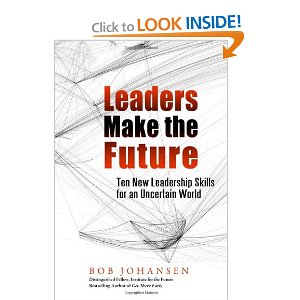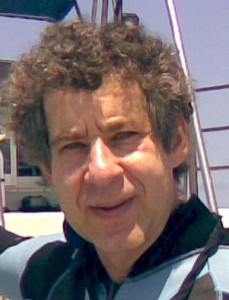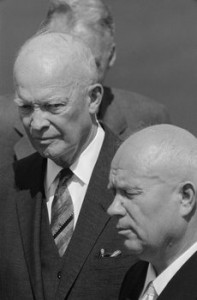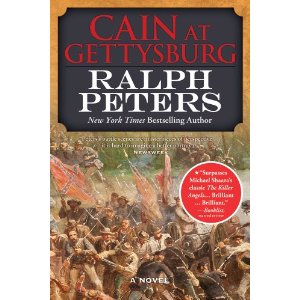Rate Your Leadship Skills for the Future – Free Self-Assessment
• Grounded in the most recent ten-year forecast by the prestigious Institute for the Future
• Identifies the new skills needed to thrive in the next decade
• Provides tools, examples, and advice to help develop your expertise in each of the ten future skills

Some leadership skills are enduring. But to be successful in the future, leaders also need an emerging set of skills uniquely suited to dealing with the challenges of the threshold decade we are entering. Today’s businesses and organizations are operating in a world characterized by volatility, uncertainty, complexity, and ambiguity. Though they already seemed stressed to the breaking point, Johansen reminds us that we are also more connected than ever before in our history, but we must fully realize the benefits of that connectivity. In the next decade, leaders will not just see the future—they will make it! But they will not be able to do it alone.
– – – – – – – – – – – –
Bob Johansen was president and CEO of the Institute for the Future from 1996 to 2004 and is now the IFTF Distinguished Fellow, as well as serving on its board. Bob has worked for more than 30 years as a forecaster, exploring the human side of new technologies. He has a deep interest in the future of religion and its impact on business, society, and individuals. Bob works mainly with senior corporate executives across a wide range of industries. Bob is a frequent keynote speaker. He has taught both graduate and undergraduate courses. He is the author of six books, including Upsizing the Individual in the Downsized Organization with novelist Rob Swigart, a guide for organizations undergoing technological change and reengineering, and GlobalWork with Mary O'Hara-Devereaux, a guide to managing global, cross-cultural teams. A social scientist with an interdisciplinary background, Bob holds a BS degree from the University of Illinois, where he also played varsity basketball, and a Ph.D. from Northwestern University. Bob also has a divinity school degree from what is now called Colgate Rochester Crozer Divinity School, where he studied comparative religions.








